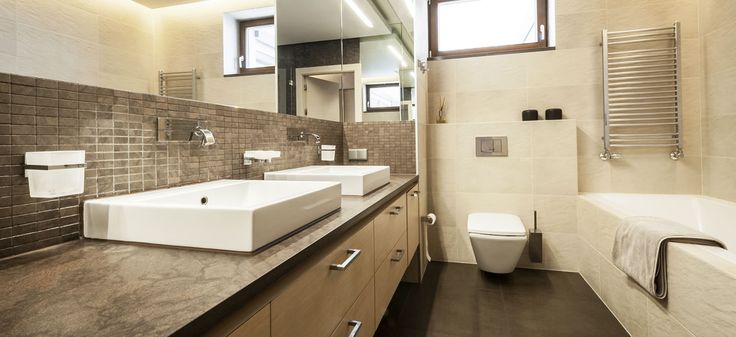A bathroom upgrade is a significant home improvement project, and its final cost can vary widely. Understanding the key factors that influence these expenses is crucial for effective budgeting and ensuring your renovation meets your expectations without financial surprises. From the initial vision to the final touches, numerous elements contribute to the overall price tag.
1. Scope of the Project
The most impactful factor on your bathroom upgrade cost is the extent of the renovation. Projects are generally categorized by their scope:
- Minor Updates (Cosmetic Refresh): This involves superficial changes without altering the bathroom’s layout or moving plumbing/electrical lines. Examples include painting, updating faucets, replacing a vanity, changing light fixtures, or refreshing grout. These are the most budget-friendly, typically ranging from $3,000 to $7,000.
- Mid-Range Remodel: This involves replacing major fixtures like the bathtub/shower, toilet, and vanity, along with new flooring and wall finishes. While the layout generally remains the same, there might be minor electrical or plumbing updates. The average cost for a mid-range remodel is $10,000 to $20,000, with some reaching $25,000.
- High-End/Luxury Remodel: This is a complete transformation, often involving full demolition, structural changes, altering the layout, moving plumbing and electrical lines, and using premium materials. Costs for these projects can range from $30,000 to $50,000+, with upscale projects potentially reaching $78,000 or even $150,000+.
2. Size and Type of Bathroom
The dimensions and purpose of the bathroom directly correlate with material and labor requirements.
- Smaller Bathrooms (Powder Rooms/Half-Baths): With fewer fixtures and less square footage, these are the least expensive to upgrade, typically costing $1,500 to $10,000.
- Guest Bathrooms: Generally larger than powder rooms but smaller than master baths, their costs range from $3,500 to $20,000.
- Primary/Master Bathrooms: These are usually the largest and most feature-rich bathrooms in a home, often including double vanities, separate showers and tubs, and more complex designs. Their upgrade costs range from $7,000 to $30,000+, with luxury master baths easily exceeding $50,000.
- Cost Per Square Foot: Overall, bathroom remodels can cost $70 to $250 per square foot, depending on the level of finishes and complexity.
3. Material and Fixture Choices
This is where your personal taste meets your budget. The quality, brand, and type of materials you select for every element of the bathroom significantly impact the final price.
- Vanity & Countertops: Stock vanities are budget-friendly ($200-$600), while custom options can be over $10,000. Countertop materials range from economical laminate ($1-$10/sq ft) to luxurious natural stone ($100-$250/sq ft).
- Bathtub/Shower: A basic insert can be $200-$2,500 (materials only), while a standard installed tub is around $5,600. Custom walk-in showers with frameless glass and multiple showerheads can range from $4,200-$8,500+, with the glass door alone costing $1,000-$5,000.
- Toilet: Basic units are $150-$600, while smart or wall-mounted toilets can be $2,000-$13,000+.
- Sinks & Faucets: Sinks range from $60-$2,000+, and faucets from $170-$360 for standard options to $500-$5,000+ for designer or smart models.
- Flooring & Walls: Vinyl/laminate flooring is $1-$14/sq ft. Ceramic/porcelain tile is $4-$60+/sq ft. Heated flooring adds $15-$60/sq ft. Wall paint is economical, while tiling walls can add $10-$50/sq ft (installed).
- Lighting & Accessories: Fixtures range from $70-$930+, and accessories like mirrors and towel bars are $100-$600+.
4. Labor Costs
Labor typically accounts for 40% to 60% of the total project cost. This includes the fees for:
- Plumbers: $45-$200 per hour.
- Electricians: $50-$200 per hour.
- General Contractor: 10%-20% of the overall project cost.
Any changes to the bathroom’s layout, such as moving a toilet, sink, or shower, will significantly increase labor costs due to the need to reroute plumbing and electrical lines.
5. Unexpected Issues and Structural Work
This is often where budgets get derailed. During demolition, hidden problems can be uncovered, especially in older homes:
- Mold or Rot: Caused by previous leaks, requiring remediation.
- Outdated Plumbing/Electrical: Systems that don’t meet current codes and need replacement.
- Subfloor Damage: Water damage under the old flooring.
It’s highly advisable to set aside a contingency fund of 10% to 20% of your total budget to cover these unforeseen expenses.
By carefully considering these influencing factors, gathering multiple quotes from licensed professionals, and building in a contingency, you can gain a clear understanding of the potential costs and successfully manage your bathroom upgrade project.

